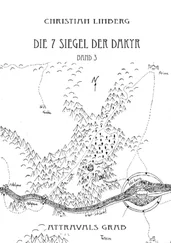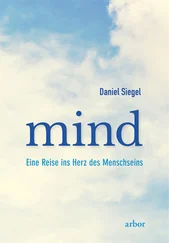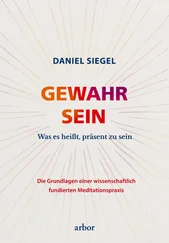Maybe it wasn’t small talk.
Paul felt increasingly as if it were the oral exam, the written part of the test having already been aced: employment checks, bank statements, stock certificates, mortgage slips, various recommendations from family and friends attesting to their good character and all-around worthiness. And the heartfelt letter it had taken Paul a solid week to compose, rip up, rewrite, painstakingly edit, and finally send off.
My wife and I are writing this letter to tell you who we are. And who we want to be. Parents.
María began by thanking them for the care package they’d sent the orphanage—diapers, bottles, formula, toys—a kind of authorized bribe Miles assured them was pro forma when adopting in Latin America.
Then she got down to business.
She asked Paul about his job— an insurance man, isn’t that so, Paul? Well, yes—though he didn’t tell her that in his case, being an insurance man meant locking himself away in a small room and compiling the stats that set the rates real insurance men went and charged you. That his life’s work consisted of calculating the risk in every known human activity, swimming through streams of raw data in an effort to reduce life to a semimanageable minefield. The definition of an actuary: someone who wants to be an accountant but doesn’t have the personality.
“How long have you been employed there?” she asked.
“Eleven years,” he answered, wondering if that categorized him as a solid breadwinner or a working transient. Regardless, he knew she already had this information. Maybe she was simply testing his truthfulness.
Then things got a little stickier.
She asked Joanna about her job.
Human resources executive for a pharmaceutical firm. Only it became clear that María wasn’t really inquiring about the nature of Joanna’s job, as much as asking her whether or not she was intending to give it up, now that she had an infant daughter to take care of.
Good question.
One that Paul and Joanna had spent more than a few weekends debating themselves, without ever quite reaching a definitive answer. Paul could tell from María’s tone of voice that she thought Joanna giving up her job would probably be a good idea.
For a moment Joanna said nothing, and all Paul could hear was the sound of the sputtering room fan, the electrical hum of the fluorescent lighting, and his own inner voice, which was screaming at Joanna to lie.
Just this once.
The problem was, lying wasn’t really part of her M.O. She was awfully good at spotting them—lies, half-truths, gross misstatements of fact—but just about incapable of letting one pass her lips.
“I’m taking a leave of absence,” Joanna said.
Well, okay, Paul thought, true enough.
“How long ?” María asked.
Paul found himself staring at the picture gallery that took up half the wall of María’s office—multishaded adolescent faces peering out from backyard decks, swimming pools, playrooms, Little League fields, from under cocked college graduation caps—and wondering whether his daughter’s picture would be gracing that wall.
“I’m not sure,” Joanna said.
Paul looked back at María and smiled. He must’ve looked like an overgrown child hoping for candy.
“I know I’ll end up doing what’s best for the baby and best for me,” Joanna said. “I’ll be a good mother.”
María sighed. She reached for Joanna’s hand. It was a gesture Paul had seen doctors and priests make when they were about to impart bad news—one priest in particular, when Paul was eleven years old and it was his hand being reached for, patted, and held tight. The day his mom died.
“Joanna,” María said, “I, too, am sure you’ll be a good mother.” She smiled.
It took Paul a minute to understand that they’d passed.
Test over.
He felt a reservoir of pent-up anxiety flooding out of him. But only for a moment.
Because María said, “I think it’s time you met your daughter.”
María kept talking, but Paul pretty much stopped listening.
Her voice was being drowned out by the sound of his own heartbeat, which seemed raucous and dangerously irregular. And another sound too—heavy footsteps that were slowly but steadily advancing down the hall. Paul became preternaturally aware of the rivers of sweat virtually flowing down both arms.
Was that her ?
The footsteps passed by and faded into silence.
Then, after a minute or two during which Paul found it difficult to breathe, a new set of footsteps appeared on his radar screen, grew in volume and texture and clarity, and seemed to stop just outside the door.
María said, “I know you’re anxious to meet her. She’s beautiful. ”
They’d received a tiny black-and-white photograph, that’s all—passport-sized, dark, and maddeningly blurred.
The door slowly opened. The overhead fan was clearly spinning. Paul could swear the air turned stock-still.
The dark-skinned nurse walked into the room hugging a fuzzy baby blanket to her chest. Paul and Joanna shot up as Paul’s legs lost all sensation, as if he were balancing on stilts.
Slowly, the nurse peeled back the top section of blanket, revealing spiky dark hair and two bottomless black eyes. The effect was a kind of infant punk, a beguiling mixture of innocence and attitude.
Paul fell immediately and terminally in love.
He was reminded of the first time he saw Joanna, across an airport waiting lounge filled with tired and frustrated people, wearily looking up to witness this pale-skinned and blue-eyed vision of loveliness haranguing an unforthcoming airline employee for information. Femininity and fearlessness seemed to meet in equal proportion, and he’d experienced something akin to a cocaine-induced rush, something he’d tried a few times in his frat days. That joyous but dangerous burst of pure exultation, which threatened to race your heart to heights of ecstasy, or break it in two.
Possibly both.
The nurse held their daughter out to them, and somehow Paul reached out for her first. The instant he pressed her to his chest, she felt as if she belonged there.
Joanna leaned in and softly brushed the baby’s forehead with one perfectly manicured finger. The baby opened her tiny mouth.
“Look,” Paul said to no one in particular, “she’s smiling at us.”
María laughed. “It’s gas, I think. She’s a beauty, though, no?”
“Oh yes,” Paul said, “she’s a beauty.” His daughter’s skin was the palest shade of olive. Her nocturnal eyes seemed to express an intimate kind of understanding. That she’d finally come home.
Paul looked up at Joanna. Tears had reduced her eyes to two pale blue lakes.
María Consuelo beamed at them.
“I knew this child was meant for you,” she said. “I always know. Have you chosen a name yet?”
“Yes,” Paul said. “Joelle.” It was an amalgam of Joseph, Joanna’s paternal grandfather, and Ellen, his mom. Both deceased. Both sorely missed, especially now.
“Joelle.” María sounded it out, then shook her head affirmatively. It had passed muster.
“Can I, honey?” Joanna put her arms out and Paul tentatively handed the baby over. She was so unbearably light, so ridiculously tiny, he was afraid that she might disappear at any second.
But no.
Joanna gathered her up in her arms and cooed.
“Ooooh . . . yes, Joelle . . . Gooood girl . . . Mommy’s here . . .” She placed her pinkie into Joelle’s tiny hand and Joelle fastened onto it.
A kind of circle had been formed, Paul thought: Joanna, Joelle, and himself. A circle is self-contained and self-sufficient.
Читать дальше












